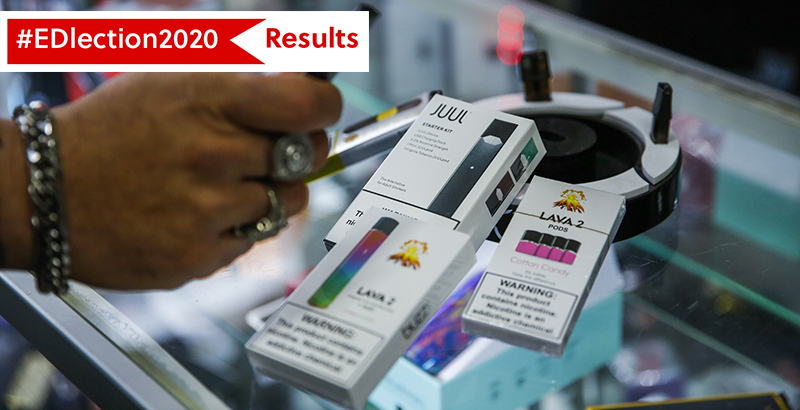Colorado Votes Yes on Raising Taxes on Smoking and Vaping to Fund Education

2020’s KEY EDUCATION VOTES: See our full coverage of the 46 races that could reshape America’s schools following Election Day — and get the latest updates on state policies and students’ challenges during the pandemic by signing up for The 74 Newsletter.
Centennial State residents have approved Proposition EE, a measure that could turn revenue from increased taxes on smoking products into pandemic relief for K-12 schools, and preschool for the state’s 4-year-olds beginning in 2023.
The proposal passed easily Tuesday night with just over 68 percent of voter approval. It’s set to go into effect in January, at which point it’s projected to start generating $87.4 million in additional tax revenue over its first six months. Colorado legalized recreational marijuana use in 2014 and last year surpassed $1 billion in revenue from cannabis sales.
Fans of Proposition EE hope that it curtails substance abuse across the state, including teen vaping: Colorado has one of the nation’s highest rates of the practice, and it isn’t subject to the same statewide taxes as smoking. Critics, on the other hand, worry that the measure will punish low-income tobacco users.
Gov. Jared Polis, an early childhood education proponent, threw his weight behind the proposal, inviting education, business and health care leaders to the table before presenting the ballot proposition to voters. The state’s teachers union endorsed the measure.
Polis celebrated the win Tuesday night, telling the press that it reflected “Republicans, independents, Democrats coming together around health and around kids.”
Health-related groups tried and failed to pass a similar rule in 2016, which wouldn’t have funded education but would have raised taxes on tobacco products — something that, until now, hadn’t happened in Colorado since 2004. Unlike that thwarted measure, Proposition EE will apply to vaping, and it will institute a $7 minimum price for a pack of cigarettes.
Discount tobacco manufacturers didn’t take kindly to that last demand.
“This is a carve-out for basically one company,” Michelle Lyng, a spokeswoman for A Bad Deal for Colorado No on EE, told Colorado Public Radio. She was referring to Altria, one of the world’s biggest tobacco producers, which she pointed out stands to benefit from the minimum-price clause.
Altria spent $16 million fighting the proposed 2016 measure. This time around, the company doled out $380,000 lobbying for Proposition EE.
While Lyng and other opponents have questioned whether taxes collected through the rule will make it through to their purported destination — the bill’s language is flexible — supporters hope that lawmakers, including the governor, stick to their promise.
2020’s KEY EDUCATION VOTES: See our full coverage of the 46 races that could reshape America’s schools following Election Day — and get the latest updates on state policies and students’ challenges during the pandemic by signing up for The 74 Newsletter.
Get stories like these delivered straight to your inbox. Sign up for The 74 Newsletter

;)
